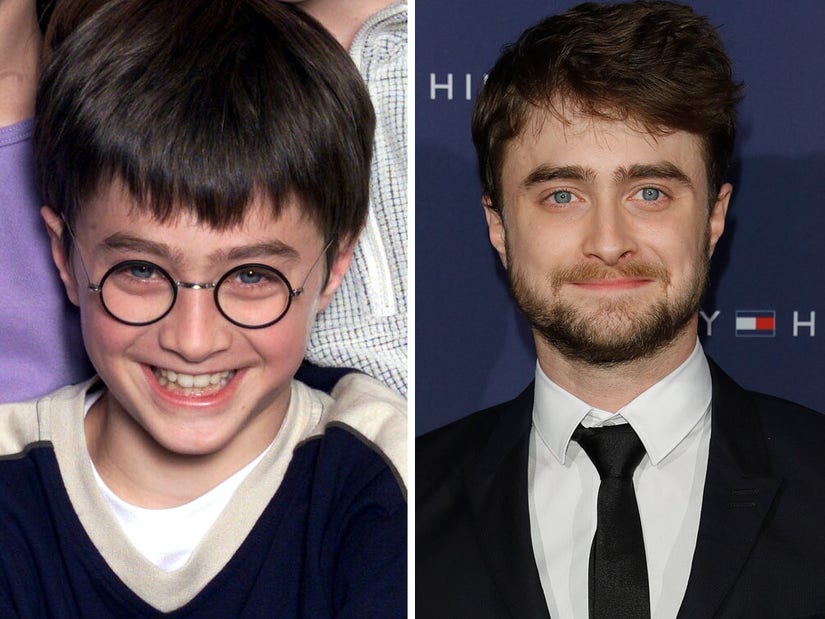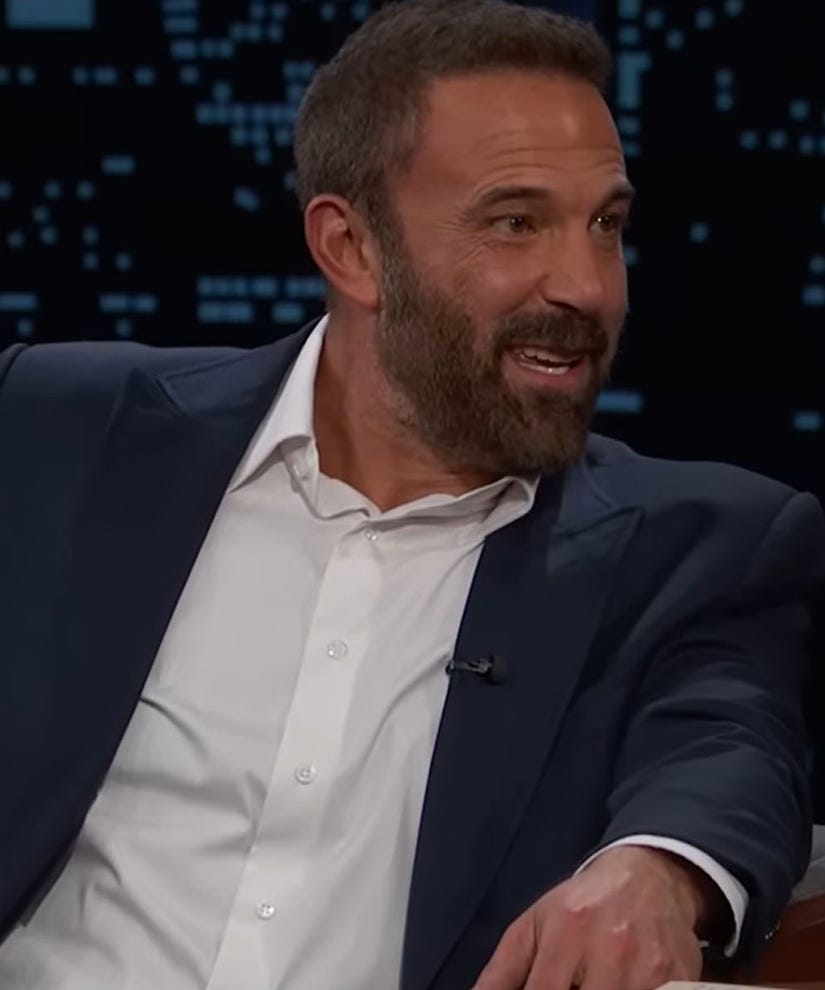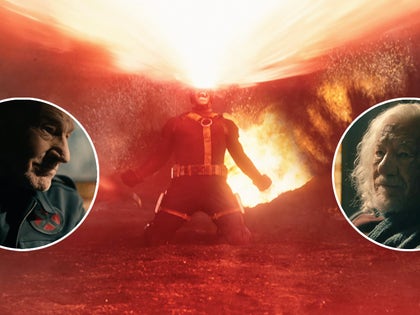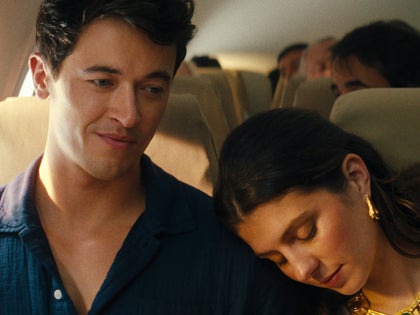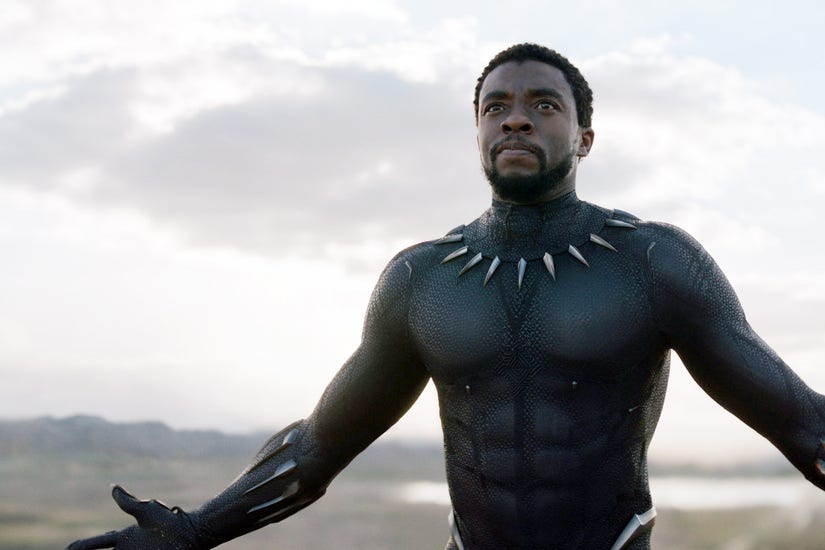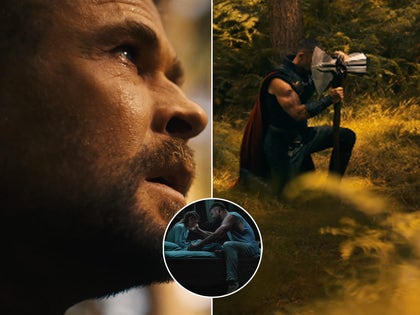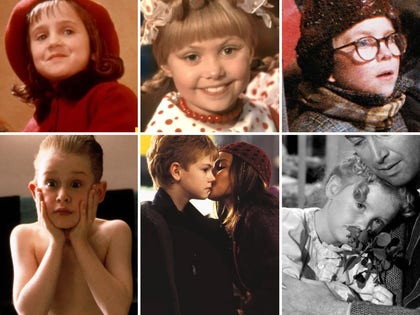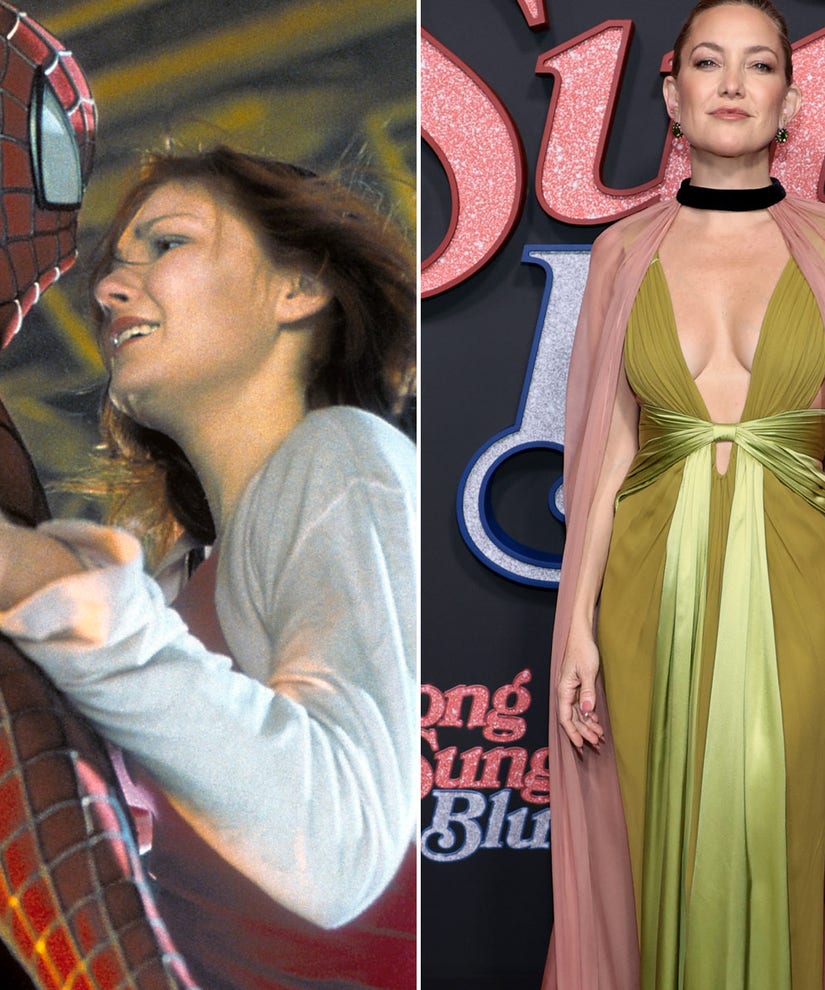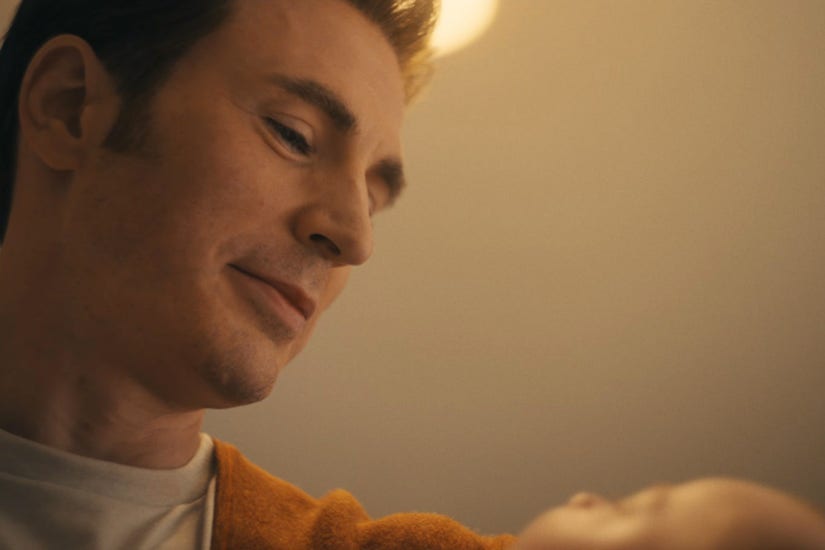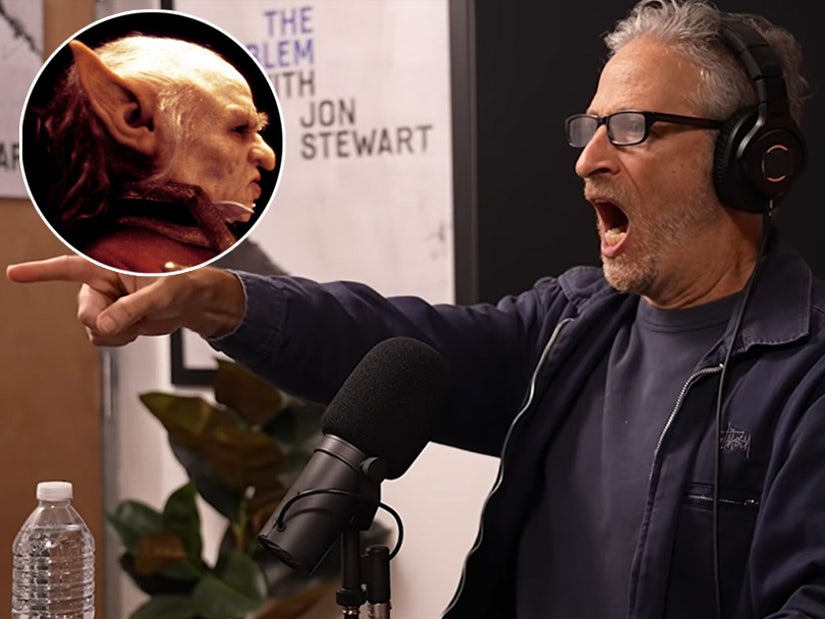 Apple TV+/Everett Collection
Apple TV+/Everett Collection
Stewart says his larger point was about "how some tropes are so embedded in society."
After making headlines for drawing a line between the "Harry Potter" movies and anti-Semitic caricatures, Jon Stewart wants everyone to know he doesn't believe the films or the author of the books on which they're based are anti-Semitic.
Stewart first talked about the Potterverse on a recent episode of his podcast, "The Problem with Jon Stewart." The episode first hit in mid-December, but his "Harry Potter" comments have resurfaced as the film franchise celebrates its 20th anniversary with a new special on HBO Max.
In a clip from the podcast, Stewart pointed out how the appearance of the goblins at Gringotts Bank in the films bears a close resemblance to images in a well-known anti-Semitic book, not to mention generations of anti-Semitic caricatures and cartoons in other media.
'"Heres how you know Jews are still where they are," Stewart said in a clip shared to YouTube. He then referenced specifically the caricatures of Jews from the 1903 anti-Semitic book "The Protocols of the Elders of Zion" and their similarity to the Wizarding World's bankers.
Stewart suggested that he's talked to people about the imagery. "I just want to show you a caricature," he says, referencing the turn of the last century tome. "And they're like, ‘Oh, look at that, that’s from 'Harry Potter.' And you’re like, ‘No, that’s a caricature of a Jew from an anti-Semitic piece of literature.’"
"J.K. Rowling was like, ‘Can we get these guys to run our bank?’" he joked.
 HBO Max
HBO Max
6 Biggest Revelations from HBO Max's Harry Potter Reunion Special
View StoryBut what was even more remarkable to Stewart was how no one seemed to bat an eye -- or at least not in sufficient numbers to make any notable noise in the public sphere.
"It was one of those things where I saw it on the screen and I was expecting the crowd to be like, ‘Holy s---, she did not, in a wizarding world, just throw Jews in there to run the f------ underground bank," Stewart said, ultimately marveling at the lack of outcry over what he sees as obvious caricatures perpetuating negative stereotypes.
On Wednesday, Stewart took to Twitter to clarify that he was not in any way suggesting Rowling or the filmmakers were anti-Semitic themselves.
"There is no reasonable person that could have watched it and not seen it as a light-hearted conversation amongst colleagues and chums, enjoying ourselves about Harry Potter and my experience watching it in a theater as a Jewish guy and how some tropes are so embedded in society that they're basically invisible, even in a considered process like movie making," he explained.
"I do not think J.K. Rowling is anti-Semitic. I did not accuse her of being anti-Semitic. I do not think that the Harry Potter movies are anti-Semitic. I really love the Harry Potter movies, probably too much for a gentleman of my considerable age," he added. "I cannot stress this enough, I'm not accusing J.K. Rowling of being anti-Semitic. She need not answer to any of it. I don't want the Harry Potter movies censored in any way. It was a light-hearted conversation. Get a f---ing grip."
 Getty
Getty
Daniel Radcliffe Voices Support for Trans Community After J.K. Rowling's Controversial Tweets
View StoryWhile the Wizarding World has not come under scrutiny for its goblins, Rowling herself has taken a lot of heat for her anti-transgender views, specifically those that have labeled her a TERF, or a feminist who excludes transgender women from their fight for women's rights.
Rowling was notably absent from HBO Max's "Harry Potter 20th Anniversary: Return to Hogwarts" special, which dropped on January 1, save for archival interview footage from several years ago (i.e., before she started saying and writing anti-trans things).
Gringotts' goblins, however, were featured in a scene where Daniel Radcliffe and Helena Bonham Carter found the animatronic puppets still sitting beneath their windows ... and were a little creeped out by them. But not for the same reason Stewart was.

